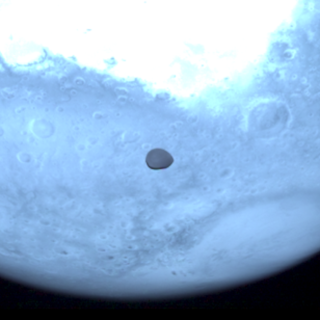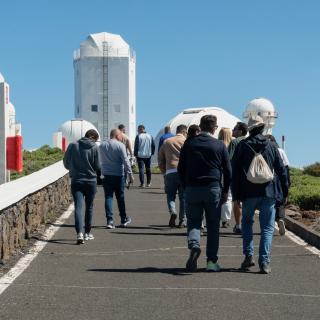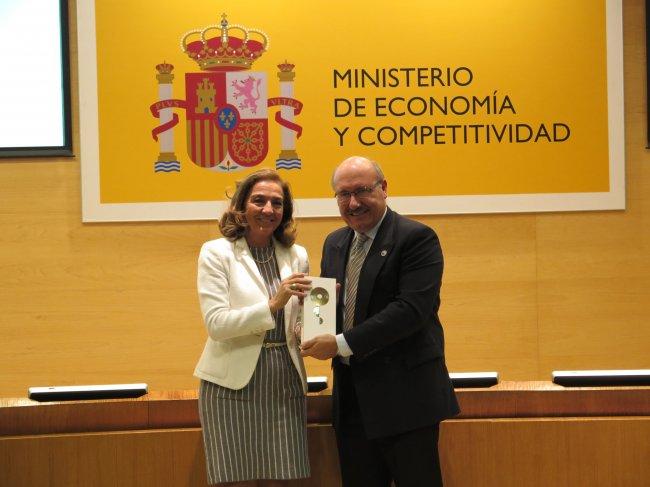It may interest you
-
 The international consortium Sloan Digital Sky Survey-V (SDSS-V) has appointed Dr Sebastián Francisco Sánchez, researcher at the Institute of Astronomy of the National Autonomous University of Mexico and senior scientist on leave from the Instituto de Astrofísica de Canarias (IAC), as director of the Local Volume Mapper (LVM) project, one of the three surveys that make up the SDSS-V. This appointment recognises Dr Sánchez's academic excellence and consolidates the collaboration with the IAC, with which the researcher has maintained a close scientific relationship for many years. Dr SánchezAdvertised on
The international consortium Sloan Digital Sky Survey-V (SDSS-V) has appointed Dr Sebastián Francisco Sánchez, researcher at the Institute of Astronomy of the National Autonomous University of Mexico and senior scientist on leave from the Instituto de Astrofísica de Canarias (IAC), as director of the Local Volume Mapper (LVM) project, one of the three surveys that make up the SDSS-V. This appointment recognises Dr Sánchez's academic excellence and consolidates the collaboration with the IAC, with which the researcher has maintained a close scientific relationship for many years. Dr SánchezAdvertised on -
 ESA’s Hera mission for planetary defense performed a flyby of Mars, as part of its gravitational assistance manoeuvre to shorten its journey to the binary asteroid system Didymos. During the flyby, the spacecraft came around 5000 km from the surface of Mars, having also the opportunity to obtain images of its two moons, Deimos (during the approach) and Phobos (when departing Mars). Julia de León, Javier Licandro, and George Prodan, researchers at the Instituto de Astrofísica de Canarias, participate in this mission, successfully launched from Cape Cañaveral, Florida (USA) on October 7, 2024Advertised on
ESA’s Hera mission for planetary defense performed a flyby of Mars, as part of its gravitational assistance manoeuvre to shorten its journey to the binary asteroid system Didymos. During the flyby, the spacecraft came around 5000 km from the surface of Mars, having also the opportunity to obtain images of its two moons, Deimos (during the approach) and Phobos (when departing Mars). Julia de León, Javier Licandro, and George Prodan, researchers at the Instituto de Astrofísica de Canarias, participate in this mission, successfully launched from Cape Cañaveral, Florida (USA) on October 7, 2024Advertised on -
 The Instituto de Astrofísica de Canarias (IAC) has initiated a project of science outreach in the Tenerife-II prison in El Rosario, with the aim of bringing knowledge about the Universe to the prisoners, as well as to the educational and other working personnel at that centre. This initiative is taken in the framework of the commitment of the IAC to the popularization of science as a tool for inclusión and social transformation. The project is led by the astrophysicist, and IAC researcher David Aguado and is a continuation of a first experiment in 2024 in the Madrid V prison at Soto del RealAdvertised on
The Instituto de Astrofísica de Canarias (IAC) has initiated a project of science outreach in the Tenerife-II prison in El Rosario, with the aim of bringing knowledge about the Universe to the prisoners, as well as to the educational and other working personnel at that centre. This initiative is taken in the framework of the commitment of the IAC to the popularization of science as a tool for inclusión and social transformation. The project is led by the astrophysicist, and IAC researcher David Aguado and is a continuation of a first experiment in 2024 in the Madrid V prison at Soto del RealAdvertised on
